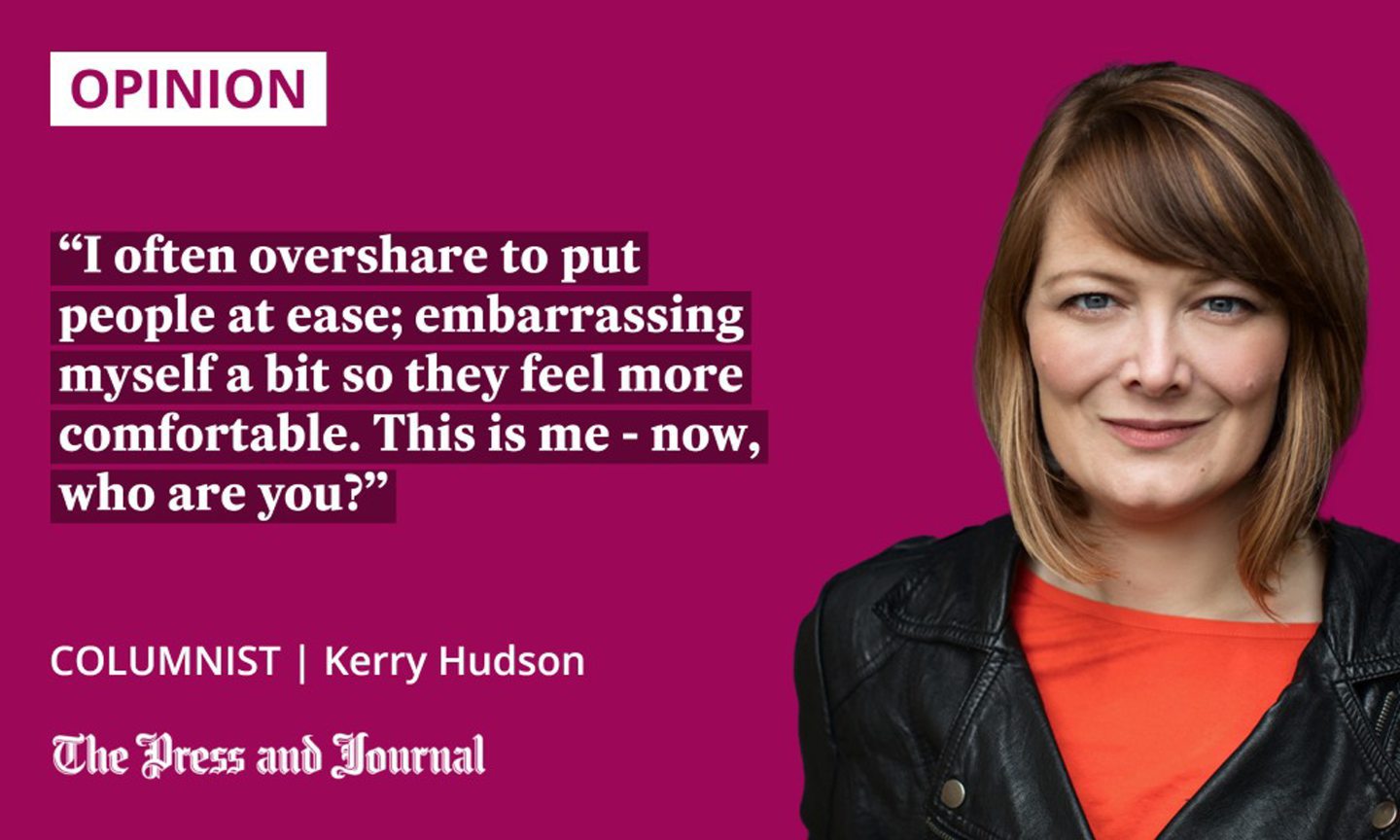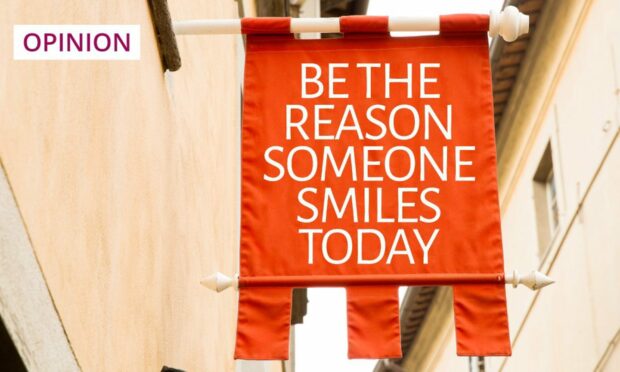It’s OK to be open about yourself if it makes someone else feel a bit more at ease, writes Kerry Hudson, self-confessed Queen of TMI.
Recently, during our first one-to-one meeting, I blithely told an esteemed working class academic whose work I greatly admire that, as far as children are concerned, we’re “one and done”, and my husband would soon be getting a vasectomy.
Before Christmas, when meeting a seasoned and accomplished editor for the first time, he knew within two minutes of us chatting that, in Prague, they did all my pregnancy examinations with the doors wide open, “so everyone gets an eyeful”.
In my defence, there was context for both of these statements, but I think we can all agree (certainly, anyone who’s read this column for the last year knows) that I am the TMI – that’s Too Much Information – Queen, and I am not even slightly remorseful.

Last Friday night, catching a taxi, I met a kindred oversharer in the driver. By the end of our 20-minute journey, I’d learned about his nut allergy, his own and his wife’s full educational backgrounds, and his favourite breed of dog.
When he told me he had been stabbed twice in the back as a teen, in the same nonchalant tone as talking about his rescue pup, I asked, without missing a beat: “My God. Are you traumatised?” and then apologised for overstepping boundaries; it’s obviously none of my business.
He replied: “No, I don’t mind. I’m not. It’s just the way things were back then”, then proceeded to tell the story of how it happened. I got the impression he appreciated the opportunity to talk about it.
Moving back to Scotland has intensified my TMI tendencies
In the past, it was a rare treat to meet someone with as much candour as me but, in Glasgow, where everyone likes a chatter, it’s less so. Since moving back to Scotland, my TMI predilection has definitely intensified.
As a socially anxious person in my 20s, I often skirted the edges of polite conversation, frustrated but trying to be as inoffensive as possible. In my 30s, I began to realise that my social anxiety stemmed partially from the exhausting work of trying so hard to hide myself. In my 40s, I’m finally realising that “me” is pretty OK.
What else has changed? Yes, I got older and feel at home here in Scotland as I never did in Prague or London, but, in recent years, I also became a mother and got very sick at the same time.
People should warn you that pregnancy takes away all pretence of privacy. I meant it when I said that all my pregnancy examinations were done with an open door and administrative staff breezing in, sharing gossip over their breakfast rolls while my legs were akimbo.
With my airway condition, I’ve had rooms full of staring, barely post-teen medical students observe parts of me even my husband has not seen on a video screen, while I tried to crack jokes. I’ve walked down hospital corridors with my backside hanging out of medical robes. I’ve tried and failed to breastfeed my baby in public.
Essentially, my body has become a functional vessel, and one that, these days, is kept going by a committee of many, many medical professionals. Illness has changed my perception of what is taboo to talk about, what should be shared, and what the word “private” really means.
I don’t want to have meaningless conversations
It also won’t surprise you to hear that coming very close to death brings home the idea that life is simply too short for bland platitudes or warm-ups. I don’t want to have meaningless conversations. Small talk is exactly that, and it has always made my bones ache with boredom.
I am a writer, and I’ve built a whole career on watching the world around me and trying to understand the inner machinations of people. I truly am fascinated, and I want the people I meet to know I’ve really listened to them.
Plus, I get out a lot less – even less than I could have ever imagined the working mum of a toddler would. So, I compress all of my curiosity and human discovery into the few intense hours when I leave the house.
Most of all, I want people to walk away from me and feel more cheerful. Life is hard, and I think if after each of your human interactions you can say the person you were talking to felt just a bit happier or stood a little taller, then that’s a pretty good way to live.
It’s worth overstepping some imaginary boundaries to really see and know each other
I often overshare to put people at ease; embarrassing myself a bit so they feel more comfortable. This is me – now, who are you?
I compliment strangers on their warm smile, the sweetness with which they interact with their child, or their excellent choice of crisp flavour. Perhaps two out of five people give me a funny look and edge away, fair enough, but others smile back, and I feel like maybe they’ll go ahead in a good mood and improve someone else’s day, too.
It’s worth overstepping some imaginary boundaries to really see and know each other. It’s OK to expose yourself – not as in Prague hospitals – to make someone feel a bit more at ease.
For me, there is no such thing as TMI, just honesty, openness, human experience and genuine connection. Give me your best stories; share everything.
Kerry Hudson is an Aberdeen-born, award-winning writer of novels, memoirs and screenplays


Conversation